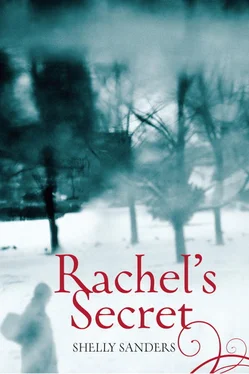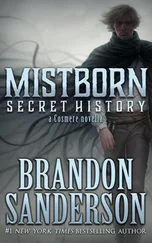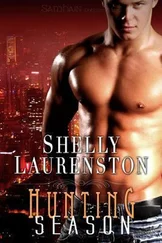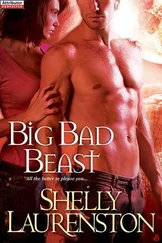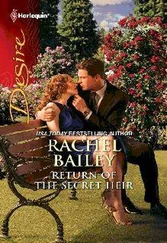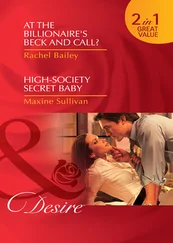“I don’t want to be Jewish, I want to be like you,” said Menahem.
Rachel watched the color drain from Sergei’s face.
“You listen to me, Menahem,” Sergei said in a firm voice.
Menahem gazed at him with watery eyes.
“Don’t ever change who you are, not for anybody,” Sergei continued.
Menahem nodded solemnly.
“Do you think your grandmother would want you to give up everything she taught you, everything your parents knew and believed in?”
Menahem wiped his eyes with the back of his hand and shook his head. His bottom lip quivered but he had stopped crying.
Sergei gently pushed Menahem toward Rachel, who opened her arms for the boy.
Rachel felt Menahem’s shoulder blades as she held him tight.
“We have to go, or the train will leave without us,” she said, forcing herself to sound in control.
“Write me,” said Sergei, handing Rachel a slip of paper with his address. “Let me know when you are out of Russia.”
Rachel let go of Menahem, took the paper and stared at it, unable to look at Sergei for fear she would start crying and set Menahem off again.
Sergei reached out and lifted her chin so that their eyes met. “We will see each other again.”
“Is that a promise?”
“Yes, and I always keep my promises.”
Rachel heard the sincerity in his tone and wanted to melt into his strong arms, to be with him forever, but this was impossible.
“We will see you in Shanghai, or America, and we will be able to be together,” she said. “Things will be different, better there.”
Sergei nodded, and backed away from them.
Rachel took Menahem’s hand. “It will be all right,” she assured him as they turned and headed toward the crowd lining the tracks.
“There it is!” Rachel cried when she saw the huge iron train coming toward them. As soon as it stopped, people stuffed themselves into the darkened openings. Arms hung out of the windows, and faces pressed against the glass.
“Rachel… hurry!” cried Nucia.
Rachel saw her sister’s face above an open window in the train.
Tightening her grip on Menahem’s hand, she ran to the open compartment door nearest to Nucia’s window. She lifted Menahem up and then hoisted herself onto the train, relief surging through her as her feet left the ground.
People crammed the train, jostling one another as they fought for room to stand. The train car smelled musty and dirty. Catching the startled eyes of her mother and sister, Rachel smiled wanly, knowing she would have to explain why Menahem was with her. But she also knew that her mother and Nucia would never turn a child away, that they would welcome him and care for him as if he had always been part of their family.
“Am I going to another orphanage?” asked Menahem in a small voice as they huddled together in the aisle.
Rachel put her arm around Menahem’s shoulder and held him to her. “I’ve always wanted a little brother. How would you like to stay with me and my mother and sister?”
He looked up at her, his eyes probing her face, as if he wasn’t sure she’d meant what she said. Then, slowly, his lips widened into a smile that warmed Rachel’s heart.
As the train gathered speed along the tracks, Rachel looked out the dirty window at the town passing by, a distorted jumble of shapes and images that were hard to recognize as the train accelerated. She couldn’t believe they were actually leaving Kishinev, where she had been born, where her father had lived and died, where Chaia still lay, unable to speak, and where she had grown to care for Sergei more than she ever could have imagined.
Rachel thought about him now, her eyes damp with tears. If only Sergei had been able to come with her, if only he had been able to give up his secure world for hers. If only life could be a fairy tale, like the “Snow Maiden,” where Ivan gave up everything to live in a castle of ice and be with the woman he loved. Rachel shuddered as she remembered that the love between Ivan and Snegurochka had ended in an instant, when they died together in the warm light of spring.
She looked out the window and saw the river in the distance. It sparkled under the sun, a greenish-brown snake winding its way across the earth. For a second, Rachel thought she saw the reflection of a radiant face with amber eyes and white skin—the face of Snegurochka, the Snow Maiden. She blinked and the image was gone, replaced by a bold ray of sunlight reflecting off the river.
Years will have to go by before the terrible recollection of these doings and of the damning bloodstain on the “conscience of the Christians in Kishineff” can be at all effaced. There is a blot on the consciences not only of those who actually committed murder, but also of those who provoked to murder, by their base lies and their preaching of hatred to their fellow men; and also on the consciences of those who maintain that the fault lay not with the murderers, but with the murdered, that there exist such things as common irresponsibility, and that a whole nation may be treated as having no rights.
—
House No. 13 , by Korolenko
The Kishinev pogrom was a direct consequence of the propaganda of lies and violence that the Russian government pursues with such energy.
—Leo Tolstoy,
Bulletin annuel de l’AIU 65, 1903
The events of this story are true: fifty-one people were killed, more than four hundred were injured, seven hundred homes and six hundred shops were vandalized or destroyed during the riots in Kishinev. On May 22, 1903, The New York Times reported that twenty-five hundred servings were distributed at the soup kitchen daily but that this was but “a drop in the ocean.”
Remarkably, the Jews themselves were blamed for the pogrom and were not allowed to meet or gather as a result of this massacre. In the end, twenty-five of thirty-seven rioters were found guilty on various counts and were sentenced to terms ranging from six months to seven years. The stiffest sentences went to two men convicted of murder, who received terms of hard labor for seven and five years. Relations among Jews and gentiles remained strained, and on October 18, 1905, another pogrom took place in Kishinev.
Many of the characters in this book are also based on real people in Kishinev: Ita and Gofsha Paskar, Chaia Berlatsky, Hosea Berlatsky, Sergei’s father (Aleksandr Konstantinovich Khanzhenkov), V. G. Korolenko, Lopukhin, Dr. M. B. Slutskii, Bishop Iakov, Rose Katsap (Menahem’s grandmother, who was bludgeoned to death while her young grandson looked on in hiding), and Mikhail Rybachenko.
Rachel’s life in Kishinev represents the experience of the majority of Jews in this city in 1903. Though they lived in poverty, Jews attended their own schools, which provided instruction in Yiddish and Hebrew. Also, they were able to speak and read Russian, while Russians were unable to communicate in Yiddish or Hebrew.
Mikhail was stabbed to death by a family member for money and his murder led to newspaper stories about Jews killing for blood. These false stories fuelled the 1903 Kishinev Pogrom. I did take the liberty of changing the location of the murder from Dubossary to Kishinev in order to develop more intimate relationships among the characters. I chose the river because the last place Mikhail was seen was skating on a river. Another interesting aside is the fact that Korolenko did meet and talk to a girl at House Number 13, who relayed her version of the pogrom, which he published in House Number 13.
Balalaika: Triangular-shaped string instrument
Blini: Small pancakes
Bubbe: Grandmother
Challah: Special Shabbat bread loaves
Читать дальше
